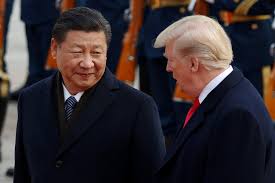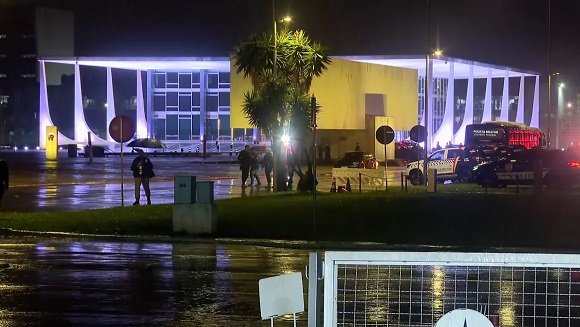As world leaders prepare for two significant summits in South America, concerns are rising over the implications of Donald Trump's upcoming return to the White House. Many are questioning how Trump's "America First" stance will impact the global economy and ongoing conflicts in Europe and the Middle East.
For China, led by Xi Jinping, these summits offer an opportunity to push forward its own agenda amidst the uncertainty. Beijing is looking to position itself as a stable alternative leader and drive a wedge between the US and its allies. The Asia-Pacific Economic Cooperation (APEC) summit in Peru and the Group of 20 (G20) summit in Brazil are crucial platforms for Xi to advance China's influence.
During his previous term, Trump launched a trade and tech war against China, establishing a confrontational approach that President Joe Biden continued, often alongside US allies. With Trump now set to return, Beijing is preparing for potentially heightened tariffs and tougher restrictions. Xi's diplomatic strategy will be on full display at the upcoming summits, with a focus on presenting China as a reliable partner amid Trump's unpredictable policies.
A planned meeting between Xi and Biden in Lima could serve as an attempt by Beijing to convey its interest in communication and stability, emphasizing that both countries benefit from cooperation rather than conflict. Xi's recent congratulatory message to Trump highlighted this sentiment, stressing that cooperation would be mutually advantageous.
Trump's stance is expected to be combative, with proposals for steep tariffs on Chinese imports and likely hawkish choices for key cabinet positions. Beijing, meanwhile, sees an opening to build stronger relations with other countries, particularly as Trump's return raises concerns among America's allies about the future of US-China relations.
China has already been making overtures to improve ties with some of America's key partners. Recently, Beijing announced visa-free entry for citizens of several European nations and resumed diplomatic engagements with Japan and South Korea. Xi also met Indian Prime Minister Narendra Modi for a formal bilateral meeting, the first in five years, to ease tensions along their shared border.
China's leaders aim to use the G20 and APEC meetings to underscore their message of stability. Premier Li Qiang recently promised at a trade expo to further open China's markets, emphasizing the country's commitment to global opportunities. At the summits, Xi is likely to present China as a committed player for global peace and development amidst global uncertainties.
However, convincing US allies won't be easy. Despite their apprehension about Trump's return, many nations remain wary of Xi's growing assertiveness in the South China Sea and Taiwan, along with his support for Russia during the war in Ukraine. China faces an uphill battle to position itself as the world's stable leader, but with Trump's unpredictability, Beijing sees a chance to make its case.





